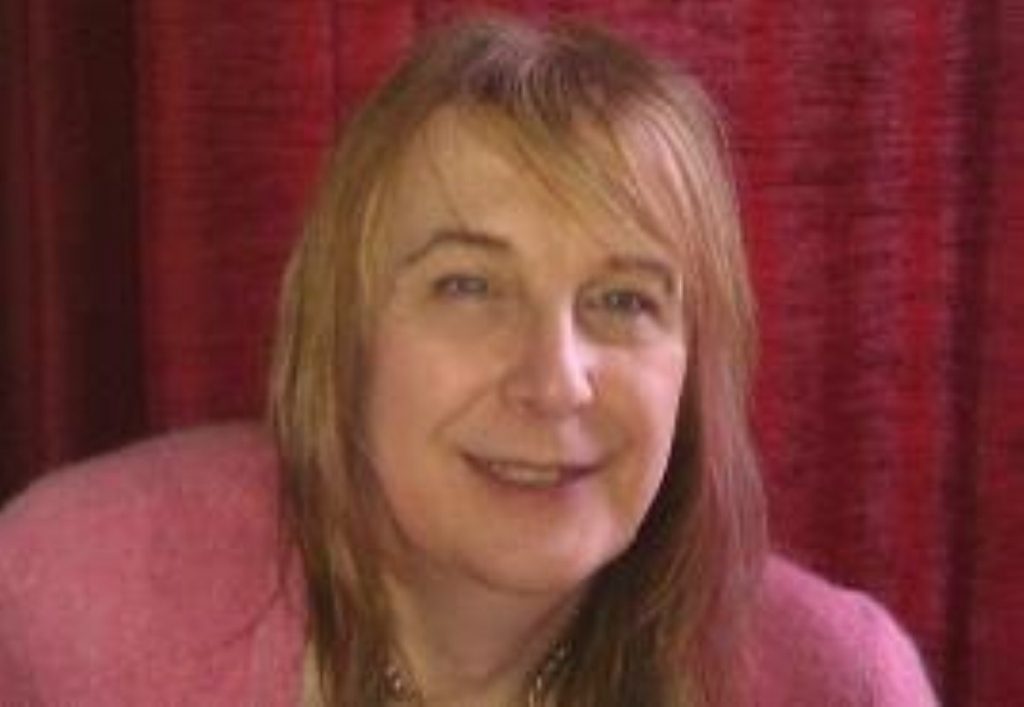Comment: How the press hounded Lucy Meadows
By Jane Fae
The story of Lucy Meadows's death is both tragic and appalling in what it says not only about how the British press operates, but also about their inability to reform themselves or self-regulate. Like the recovered addict, they are well-behaved only so long as the spotlight is on their behaviour. Remove that spotlight for an instant and it's back, at once, to all the bad old ways.
Lucy's story is a simple one. She had lived her life to date as a man, and worked as a primary school teacher. In December, she 'came out' and began to transition to broad support from local parents and her school.
There is no story here. Unless you believe that the press has a moral purpose in supporting a particular old-fashioned model of the family. So the press camped out on Lucy's doorstep. In emails sent to a trans activist asking for support Lucy complained of her inability to leave the house by the front door, of movement curtailed, of parents offered money for pictures of her, of pictures lifted without permission from her family's Facebook.


Respect? What respect?
Worst of all, though, and supposedly justifying this intrusion was the digging out of a couple of parents. Angry of Tonbridge Wells, transported to Accrington and the north, who complained about how their children would be affected. Ah, yes. Think of the children!
Except the press had to go deep to find these (two). In fact, according to Lucy's email, they had to turn away parents who were irritated to discover the press weren't interested to hear the supporting remarks they had to make about her.
This week, on Tuesday, Lucy's body was found by police. This brave woman, on the brink of living her own life for the first time, was dead. The cause, for now, is not yet known. Though the media monstering continues: almost without exception, the national papers described an individual who may have died to defend her gender as "a man".
Leveson heard – twice – from Trans Media Watch (TMW). The evidence that group gave was about how the trans community is regularly ridiculed, monstered and treated as 'freak show' for no better reason than to satisfy press and public prurience. Though TMW, and their chair, Helen Belcher, represented the trans community, their evidence stood up for other minority groups, equally traduced, equally turned into peepshow in pursuit of circulation. Travellers. Asylum seekers. Muslims. All, in their time, victims of the press.
For a while, matters improved. Interim Sun editor David Dinsmore even deigned to speak openly to this journalist about trans matters without biting her head off!
Then Lord Leveson packed his bags and went off to Australia. For a while, the apparent improvement in behaviour stuck. But over the last few months, the frequency, the viciousness, the sheer vindictiveness of attacks has returned.
It may be the press finally overstepped the mark. Speaking this afternoon, Helen Belcher revealed that in the last 24 hours she had spoken with and identified serious disquiet about this case on the frontbenches of the two major parties, as well as further interest from the backbenches about doing something more.
She believes further measures to curb press violence may now be justified and that there is certainly the will to take matters further in some parts of the House of Commons. The only obstacle, she suggests, is lack of parliamentary time – and the fact that the parliamentary timetable is, itself, in the hands of the party least minded to consider doing anything more about the press.
The crisis may pass. Lucy will be mourned. Another notch will be chalked up to press disregard for basic human standards – and nothing more will be done.
Still, there is the old justification for direct action: where no democratic avenue for redress exists, the people have a right – a duty even – to take the law into their own hands. The press, today, are playing a dangerous game: a very dangerous game indeed. They think they've escaped the worst of what Leveson might have imposed.
They have not even begun to restore popular trust in their ethics.
Jane Fae is a feminist and writer on gender issues. You can read more of her writing here and follow her on Twitter here.
The opinions in politics.co.uk's Comment and Analysis section are those of the author and are no reflection of the views of the website or its owners.









